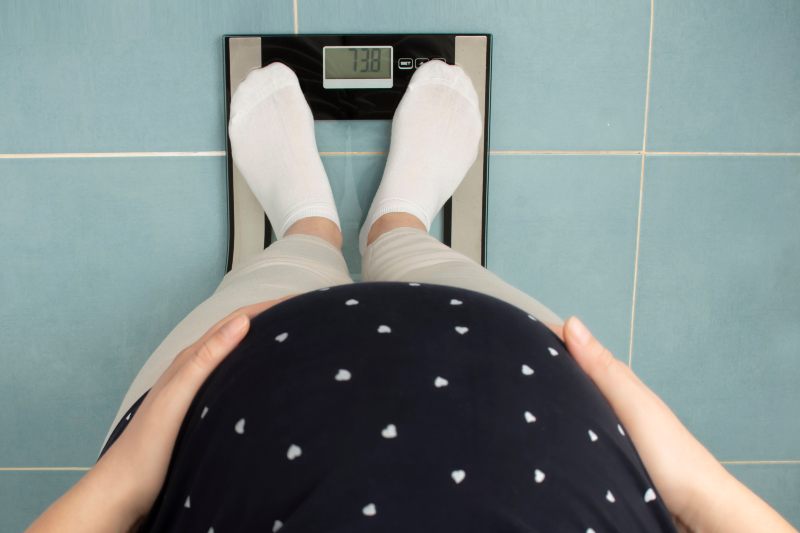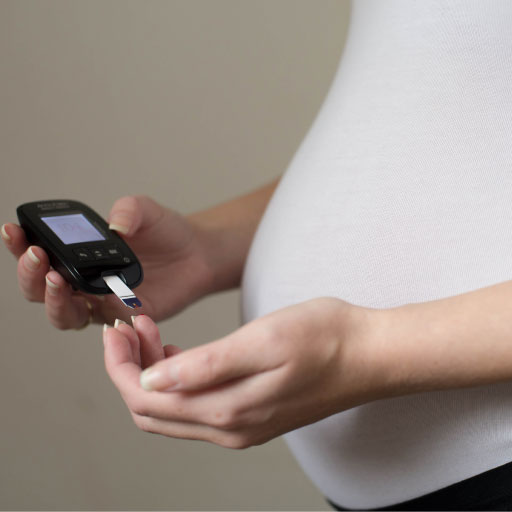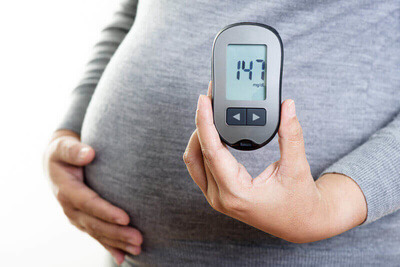Gestational diabetes which is also called pregnancy diabetes occurs in expectant mothers due to placental hormones. The placenta is an organ that develops at the onset of pregnancy for the purpose of nurturing the baby during the different stages of development. This organ produces new hormones which are required for the growth and sustenance of the baby. However, these placental hormones can often cause glucose to build up in the mother’s blood thereby leading to gestational diabetes.
Symptoms Of Gestational Diabetes:
Gestational diabetes or pregnancy diabetes usually occurs in the second trimester of pregnancy. The symptoms can be difficult to distinguish from regular pregnancy urges which is why doctors often routines test for the condition. These symptoms include

- Excessive hunger
- Excessive thirst
- Frequent urination
Risk Factors:
As mentioned earlier, it can be difficult to identify the symptoms of pregnancy diabetes which is why doctors order screening tests. This is especially true when the mother is at a high risk of developing the disease. Risk factors include

- Being prediabetic before the pregnancy
- Being overweight
- Having a history of diabetes in the family
- Have had gestational diabetes during a previous pregnancy
- Suffering from high blood pressure or other medical conditions
- Are over 30 years of age
Having these risk factors however, does not mean that you will definitely have pregnancy diabetes.
Prevention And Treatment Of Gestational Diabetes:
All expectant mothers whether they are high risk or not can take measures to reduce the chances of getting pregnancy diabetes. Even if the condition does occur it is treatable and the mother can have a safe and healthy pregnancy.

Prevention:
- Overweight women should try and lose weight before they get pregnant and weight loss during pregnancy is not recommended.
- Make sure to eat a low-sugar diet and increase fibre and protein.
- Follow a daily exercise routine that has been recommended by your doctor.
- Don’t skip meals.
- Avoid vigorous workouts.
Treatment:
The treatment that you receive will be based on what your doctor prescribes for you based on your personal health and medical history. The doctor might ask you to perform certain routine tests that can help keep track of your blood sugar levels. Under no circumstances should a woman with gestational diabetes attempt to self-medicate or stop medication on their own. Ask your doctor any questions you might have and clear all your doubts with them

As the old adage goes: Prevention is better than cure. Check out the health blog page for more resources that can help you prevent lifestyle conditions. You can also log on to the Activ Living App for expert advice and community support on your journey to better health. Remember, even with your blood sugar under control, you baby will still be really sweet.





 1800-270-7000
1800-270-7000










hello there! thank you for posting this. I appreciate your standpoint and I see where youre coming from. thanks again!